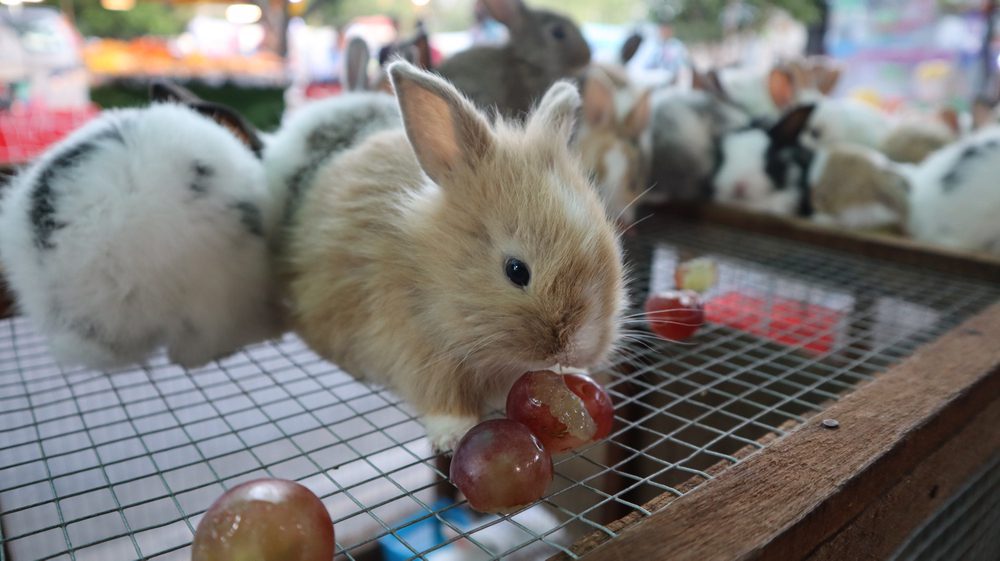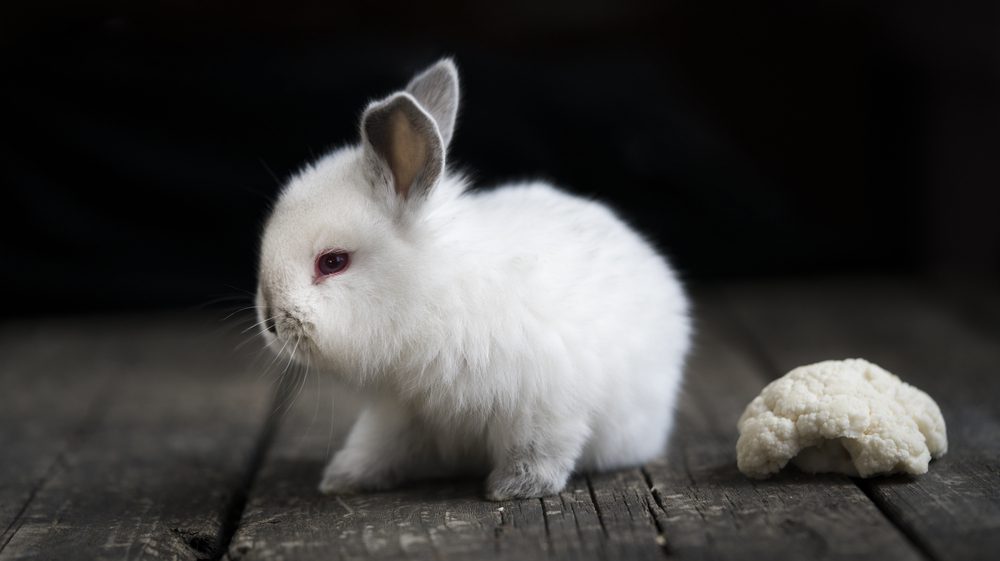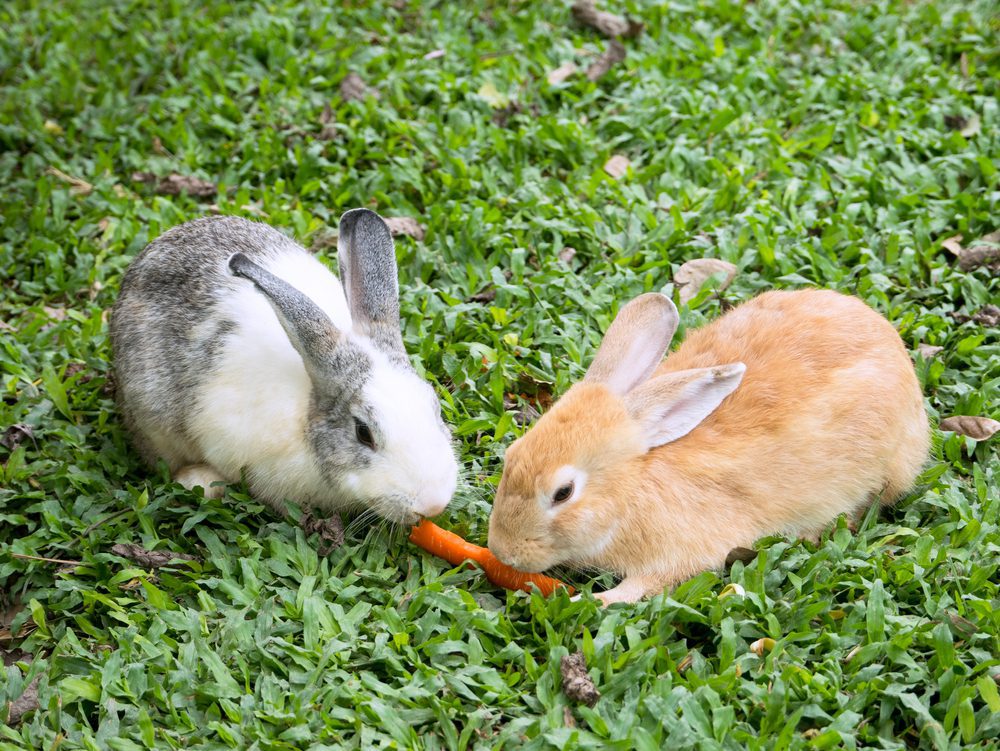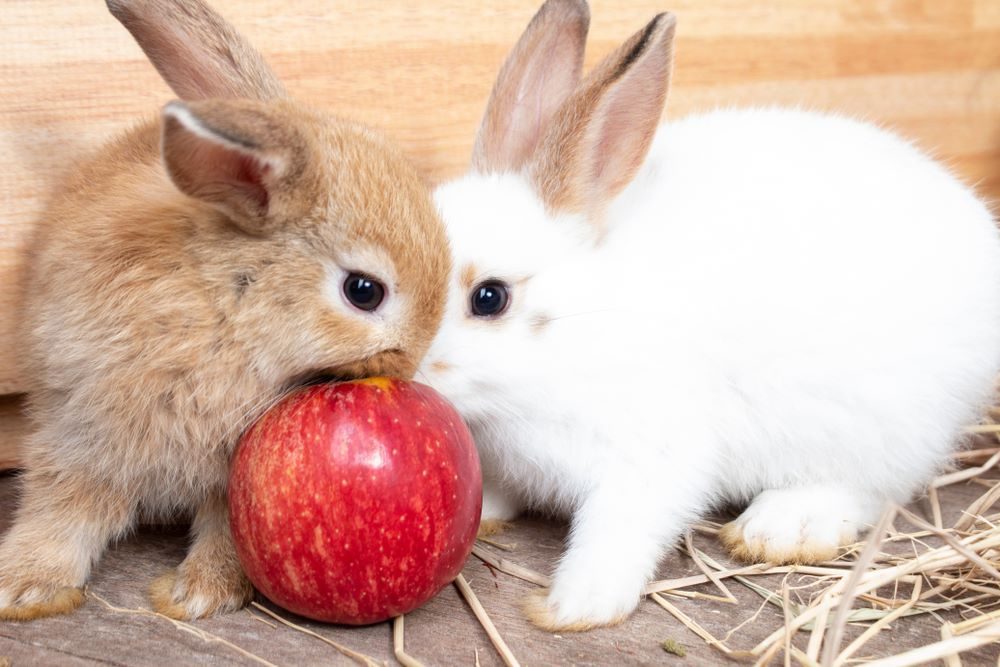Can Rabbits Eat Grapes?
Imagine you’re enjoying juicy grapes, and your rabbit looks up at you with those big, adorable eyes. You might think, Can I give some grapes to my bunny? This question is more important than you might realize because the health of our fluffy companions is always a top priority.
We’re going to dive into the fascinating world of rabbits and their diet, especially focusing on grapes. We’ll explore whether these sweet, round fruits benefit your rabbit. You’ll learn about the nutrients in grapes, how they can benefit or potentially harm your rabbit, and how to introduce them safely into their diet. We’ll also answer rabbit owners’ common questions and share expert advice on rabbit nutrition.
So, let’s hop into this juicy topic and find out if grapes are a safe treat for your rabbit!
Can Rabbits Eat Grapes? Understanding the Basics
Grapes are small, juicy fruits in different colors, like green, red, and purple. They grow in bunches on vines and are popular because they’re sweet and easy to eat. But when it comes to feeding grapes to rabbits, there’s more to consider than just their yummy taste.
Now, the big question: Can rabbits eat grapes? The simple answer is yes, but it’s not as straightforward as you might think. Just like some foods are good for us in small amounts but not large ones, the same goes for rabbits and grapes. Grapes are not harmful to rabbits, but they are like a special treat – something they can have occasionally but not every day.
Why Not Everyday?
You might wonder, Why can’t my rabbit always have grapes if they’re safe? Here’s the thing – grapes are full of sugar. While a little bit of sugar is okay, too much isn’t good for rabbits. Their tummies are sensitive, and too much sugar can cause problems like upset stomachs. So, it’s all about balance and moderation.
A Small Amount Goes a Long Way
How much is too much, though? Think of grapes as a tiny treat. One or two grapes once or twice a week are plenty for your rabbit. This small amount is enough to make your rabbit happy without giving them too much sugar.

Nutritional Benefits of Grapes for Rabbits
Grapes: A Source of Vitamins
Grapes aren’t just tasty; they also have some good stuff in them. They are full of vitamins that can help keep your rabbit healthy. For example, grapes have Vitamin C, which helps with your rabbit’s skin and fur, making them look shiny and beautiful. They also have Vitamin K, which is important for strong bones. But remember, grapes are a bonus, not the main part of what your rabbit should eat.
Minerals in Grapes
Next up are minerals. Grapes have them, too! They contain potassium and manganese. Potassium is like a superhero for muscles and nerves. It keeps your rabbit’s muscles strong and their nerves working right. Manganese helps with growth and helps keep bones strong. So, a grape now and then is like giving your rabbit a little health boost.
Fiber and Water Content
Grapes also have fiber and water. Fiber is crucial for your rabbit’s digestion. It helps keep their tummy happy and prevents constipation. The water in grapes is good, too, especially on hot days. It helps your rabbit stay hydrated. But, don’t forget, hay should be the main source of fiber for your rabbit, not grapes.
Antioxidants: Tiny Health Warriors
Another amazing thing about grapes is their antioxidants. These are tiny warriors fighting off bad stuff in your rabbit’s body. They help keep your rabbit healthy and protect them from sickness.
Risks Associated with Feeding Grapes to Rabbits
Too Much Sugar is a No-No
Grapes, although yummy, are high in sugar. This is tricky for rabbits. When rabbits eat too much sugar, it can lead to health problems. Just like eating too much candy isn’t good for us, too many grapes aren’t good for rabbits. It can cause their stomachs to get upset or even lead to more serious issues like dental problems or obesity. So, we must be careful with how many grapes we give them.
Watch Out for Digestive Issues
Rabbits have sensitive digestive systems. Foods that are not a normal part of their diet, like grapes, can cause digestive upset. Symptoms like diarrhea or a gurgly tummy show that your rabbit might not handle grapes well. If you notice these signs, stopping the grapes and chatting with your vet is best.
The Danger of Pesticides
Here’s something else important: Grapes can have pesticides on them. Pesticides are chemicals that keep bugs away from crops but can harm rabbits. Always wash grapes well before giving them to your rabbit. Choose organic grapes when you can, as they have fewer pesticides.
Allergies and Individual Reactions
Just like people, rabbits can be allergic to certain foods. Some rabbits might have a bad reaction to grapes. If you see your rabbit acting strangely or looking unwell after eating grapes, it’s time to stop giving them and talk to a vet. Every rabbit is unique, and what’s okay for one might not be okay for another.
How to Safely Introduce Grapes into a Rabbit’s Diet
Introducing grapes to your rabbit’s diet is like trying a new game. You start slow, learn the rules, and see how it goes. Give your rabbit just one small grape to start. Then, watch them closely for the next 24 hours. Look for any signs of stomach upset or changes in behavior. If your rabbit seems fine, it’s a good sign they can handle grapes.
The Right Portion Size
When it comes to grapes, think small. A good rule of thumb is to one or two grapes once or twice weekly. This is enough to give your rabbit a treat without overdoing it. Remember, grapes are like candy for rabbits. A little bit is fun, but too much can cause problems.
Chop Them Up
Cut the grapes into smaller pieces to make it easier for your rabbit. This helps prevent choking and makes it easier for them to eat. It’s like cutting your food into bite-size pieces – making eating easier and safer.
Mix with Other Foods
Another great way is to mix grapes with other rabbit-friendly foods. You can add a small piece of grape to their regular salad of leafy greens. This way, your rabbit gets various nutrients and the excitement of finding a grape in their usual food.
Always Fresh, Never Dried
Stick to fresh grapes. Dried grapes, like raisins, are a big no. They have way more sugar and can be very harmful to your rabbit. Fresh grapes are the way to go for a safe and healthy treat.
Alternatives to Grapes in a Rabbit’s Diet
Just like we love having different foods to eat, rabbits also enjoy variety in their diet. But it’s important to choose the right foods that are safe and healthy for them. If you’re looking for alternatives to grapes, plenty of options can make your rabbit just as happy.
Safe and Healthy Fruits for Rabbits
Other fruits, just like grapes, can be a great treat for your rabbit. But remember, moderation is key. Fruits like apples (without seeds), bananas (in very small amounts), and blueberries can be good choices. These fruits are like special snacks for your rabbit, so give them a few times a week.
The Best Veggies for Your Bunny
Vegetables like cauliflower are another excellent choice. Rabbits love leafy greens like romaine lettuce, kale, and spinach. You can also give them carrots, but only in small amounts because they’re high in sugar, just like grapes. Vegetables should be a bigger part of their diet compared to fruits.
The Importance of Hay
Let’s not forget about hay! Hay should be the most important part of a rabbit’s diet. It’s great for their teeth and digestion. Always ensure your rabbit has plenty of fresh hay to munch on daily. It’s their main meal, while fruits and veggies are more like treats.
Always Go for Fresh and Washed
No matter what fruits or veggies you choose, make sure they’re fresh and washed. This helps remove any pesticides or chemicals that might be on them. Fresh and clean is the way for your rabbit’s health and safety.
Final Thoughts
With all this knowledge at your fingertips, you can make informed decisions about including grapes in your rabbit’s diet. Remember, the key is balance and moderation. Use grapes as a special treat, not a staple, and always watch your rabbit’s health and reactions to new foods. Your rabbit’s health and happiness are paramount, and your attention to their diet is crucial in maintaining their well-being. So, use this guide to enrich your rabbit’s diet safely and responsibly, and enjoy the journey of providing the best care for your fluffy friend.
Frequently Asked Questions
How Many Grapes Can I Feed My Rabbit?
This is a common question among rabbit owners. Remember, grapes are a treat, not a regular part of your rabbit’s diet. Giving your rabbit one or two grapes once or twice a week is best. Think of it like a special snack, not a daily meal.
Can Rabbits Eat Grape Stems and Leaves?
Grape stems and leaves might seem like a good idea, but it’s better to avoid them. They can be tough on your rabbit’s digestive system and aren’t as safe as the grape. Stick to the fruit, and always in moderation.
Are There Any Grape Varieties That Are Safer for Rabbits?
All common varieties of grapes – like red, green, and black – are similar regarding sugar content and safety. The key is not the type of grape but how much and how often you feed them to your rabbit. Always in small quantities and not too often, no matter the variety.
What Should I Do If My Rabbit Eats Too Many Grapes?
If your rabbit eats too many grapes, watch them closely. Look for signs of stomach upset, like diarrhea or changes in behavior. If you notice anything unusual, it’s best to contact your vet right away. They can give you the best advice on what to do next.
Can Grapes Cause Allergies in Rabbits?
Just like people, rabbits can have allergies, too. While it’s not common, some rabbits might be allergic to grapes. If you see your rabbit reacting to eating grapes (like itching, swelling, or trouble breathing), stop feeding them grapes and talk to your vet.




